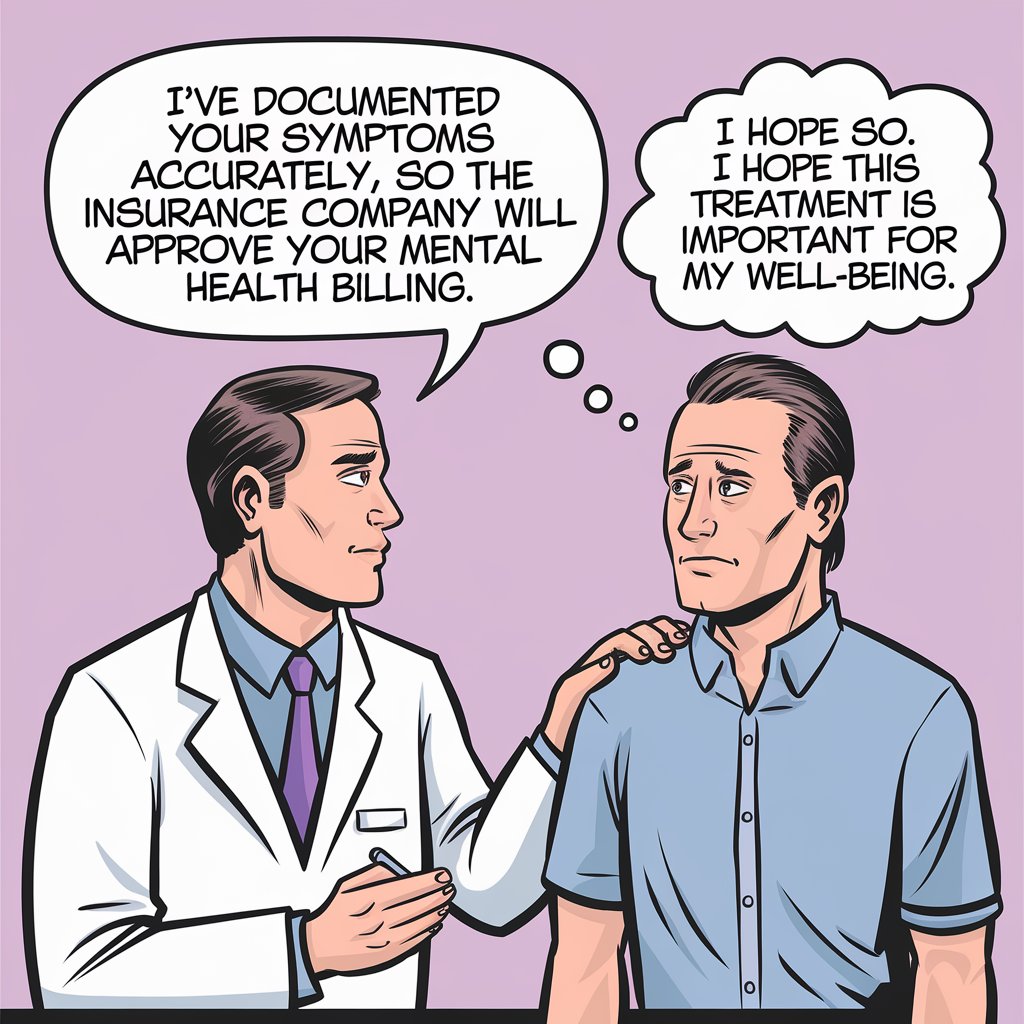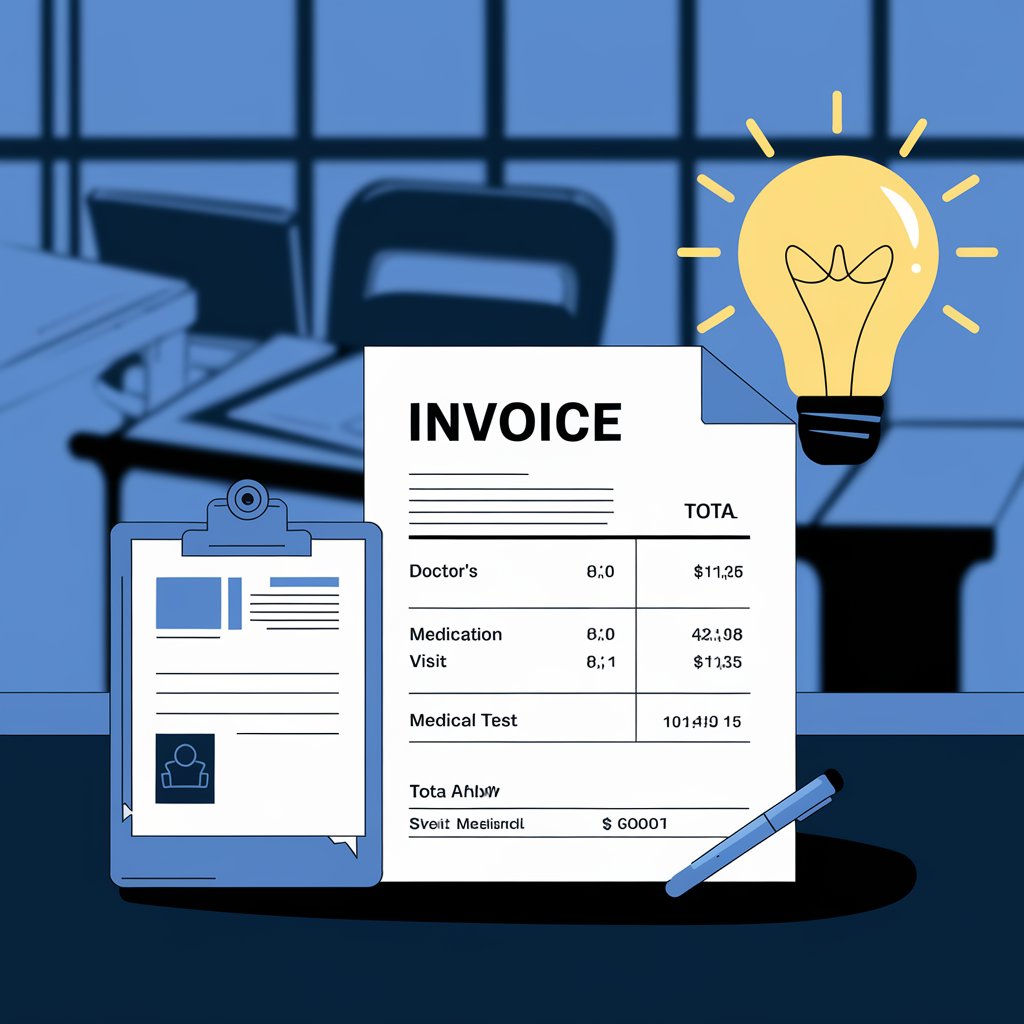
“Accurate documentation isn’t just necessary in mental health billing – it’s the backbone of ethical care and seamless reimbursements.”
In mental health, where patient care is as nuanced as it is critical, the significance of accurate documentation cannot be overstated. Whether you are a therapist, psychiatrist, or counselor, precise and thorough records aren’t just a regulatory requirement; they are essential for ensuring your patients receive uninterrupted care and your practice avoids revenue leaks.
In this blog, we will explore why accurate documentation is vital in mental health billing, the risks of poor record-keeping, and how adopting best practices can transform your billing process.

Documentation serves as the primary objective record of a patient’s condition and care. In mental health, it is essential for effective communication and collaboration among all care providers. Accurate, timely, complete, and standardized records ensure continuity of care, providing a clear understanding of the patient’s history and facilitating coordination across healthcare teams, including physicians, nurses, and social workers.
Insurance companies base reimbursements on the details provided in your documentation. From the type of mental health services rendered to the severity of the patient’s condition, every detail must be correctly documented to justify claims. Missing or vague information often leads to claim denials or underpayment, directly impacting your practice’s revenue.
Mental health billing is governed by strict legal frameworks, including HIPAA (in the US) and GDPR (in the UK). Accurate documentation ensures that your practice remains compliant with these regulations, avoiding costly penalties and safeguarding your patients’ sensitive information.
Mental health treatment often spans months or even years. Thorough documentation helps healthcare providers maintain a seamless understanding of a patient’s history, progress, and care plan, which is crucial for effective treatment and informed decision-making.
One of the leading causes of claim denials in mental health billing is insufficient or incorrect documentation. From missing codes to unclear descriptions of services, even minor errors can result in delayed payments or outright rejections. Accurate documentation minimizes these risks.
Failing to maintain accurate records doesn’t just jeopardize your billing – it can also harm your practice’s reputation and lead to legal complications.
Your front-desk staff and billing team are your first line of defense against errors. Regular training on mental health billing codes, documentation standards, and industry updates is essential to maintain accuracy.
Leverage billing software designed for mental health practices. These tools streamline documentation, minimize human error, and help ensure compliance with regulatory requirements.
Create clear templates and guidelines for your team to follow. This could include checklists for essential details, such as diagnosis codes, treatment plans, and session notes.
Conduct periodic reviews of your documentation and billing processes. Identifying patterns of errors early can help you address issues before they become significant problems.
Mental health billing codes, such as CPT and ICD-10, are frequently updated. Staying informed about these changes ensures your documentation aligns with the latest requirements.

Accurate documentation is the cornerstone of a successful revenue cycle.
Here’s how it directly impacts your practice’s financial health:
Beyond financial and compliance benefits, accurate documentation plays a pivotal role in improving patient outcomes:
1. Why is accurate documentation important in mental health billing?
Accurate documentation ensures proper reimbursements, compliance with regulations, and continuity of patient care. It minimizes claim denials, speeds up payments, and supports ethical and effective treatment planning.
2. How does poor documentation affect mental health practices?
Poor documentation can lead to claim denials, financial losses, legal liabilities, and disrupted patient care. It can harm the practice’s reputation and cause patient dissatisfaction.
3. What are some best practices for accurate mental health billing documentation?
4. How can technology help with mental health billing documentation?
Billing software streamlines the documentation process, reduces human errors, and ensures compliance with regulatory requirements, saving time and improving accuracy.
5. What services does EZ Settle Solution offer for mental health billing?
EZ Settle Solution provides tailored billing services, including accurate coding, claims management, and documentation support. We help minimize denials, maximize reimbursements, and ensure compliance.
6. How does accurate documentation enhance patient care?
Accurate documentation facilitates seamless communication among providers, ensures continuity of care, and supports personalized treatment planning, improving overall patient outcomes.
At EZ Settle Solutions, we understand the complexities of mental health billing and the critical role accurate documentation plays in your practice’s success. Our team of experts is dedicated to helping healthcare providers like you streamline their billing processes, minimize claim denials, and maximize reimbursements.
Ready to take the stress out of mental health billing?
Contact EZ Settle Solutions today for a consultation and discover how our tailored services can empower your practice to thrive.
Accurate documentation is more than a billing necessity – it’s a commitment to excellence in patient care and practice management. By prioritizing precision in your records, you not only enhance your chances of receiving full reimbursements but also build a reputation as a reliable and ethical mental health provider.
Don’t let billing challenges hinder your mission to provide exceptional mental health care.
Partner with EZ Settle Solution, and let us help you navigate the intricacies of mental health billing confidently and easily.
Contact us today and enhance your practice’s efficiency and profitability!
Contact us at 346-335-4093 / info@ezsettlesolutions.com or schedule a free consultation to learn more about how we can assist you.